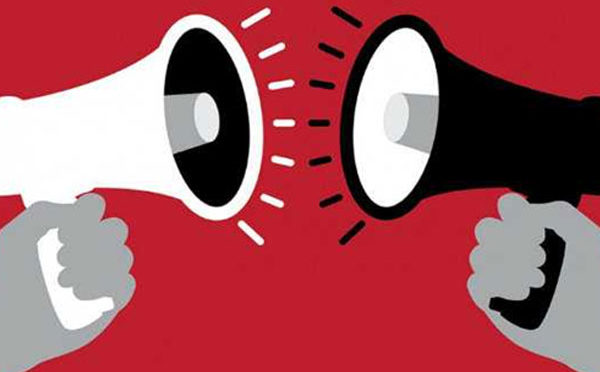Hate Speech must be protected under Freedom of Expression
Posted on : May 11, 2020Author : AGA Admin

The ideal of Liberty in a Democracy is protected by robust implementation of the Freedom of Expression. The use of language to express oneself without fear of retaliation from the state makes liberal democracies one of the most successful forms of government in promoting human development. ‘Hate Speech’ which also forms a part of this human expression in my opinion must not be curbed by any legislation of the State.
Hate Speech has been a part of human history since time immemorial. Copernicus and Galileo used hate speech by disregarding religious teachings of the Church. If hate speech was curbed by the state then human progress would have come to a halt. Even if hate speech propagates ideas of misogyny, racism and xenophobia then it must not be suppressed by the state since all of us will lose the ability to reinforce what is right. It is only by being exposed to contradictions that right ideas become reliable guides for actions.
The ideas can only be opposed by constant criticism by what we believe is to be right. The state must not interfere and decide what speech is right and what is wrong since it deprives other humans of judging.
Much of the free speech debate is about illocutionary powers attached to hate speech. An illocutionary speech is one which both describes and does – utterance is equal to the performance of the act. For example, when a judge in the courtroom hands down a verdict saying, “I pronounce you guilty.” According to Judith Butler the phenomenon of attaching illocutionary powers to hate speech is a false sense of stability in the language. It bestows sovereignty on the language used by the individual which in actuality belongs only to the state. It is only the state through its usage of law which is an illocutionary power which always make language mean precisely what it says.
Curbing of hate speech by the state can seriously undermine chances of cultural subversion and the re-signification of derogatory/hate speech from popular culture. One example is the usage of the word ‘nigger’ and ‘queer’ for the black and the queer community across the world. If we ascribe the state as the sole arbiter of what can be said and what cannot be, we run the risk of undermining the powerful usage of language. We must not think individuals to be vulnerable at the mercy of the state.
Giving the state the power to decide on acceptable free speech gives the state the ability to allow only such speech which doesn’t undermine its position and secures itself above the individual. Individuals will decide what is hate speech or not through debates and free exchange of ideas and it is only by this way that human beings will progress. Thus, I firmly believe that hate speech must be protected under the freedom of expression.
Manish Datta
Intern, AGA
(Disclaimer: The opinions presented in the article belong to the writer and do not in any capacity, reflect the views of the organisation.)
References
Austin, J.L., How to Do Things with Words, 2nd ed. (Harvard: Harvard University Press, 1975).
Butler, Judith, ‘Sovereign Performatives in the Contemporary Scene of Utterance’, Critical Enquiry, 23(2), 1997: 350-77.
Mill, J.S., ‘On the Liberty of Thought and Discussion’, in On Liberty and Other Essays, new ed. (New York: Oxford University Press, 1998).
Scanlon, Thomas, ‘A Theory of Freedom of Expression’, Philosophy and Public Affairs, 1(2), 1972: 204-226.





Leave a Reply